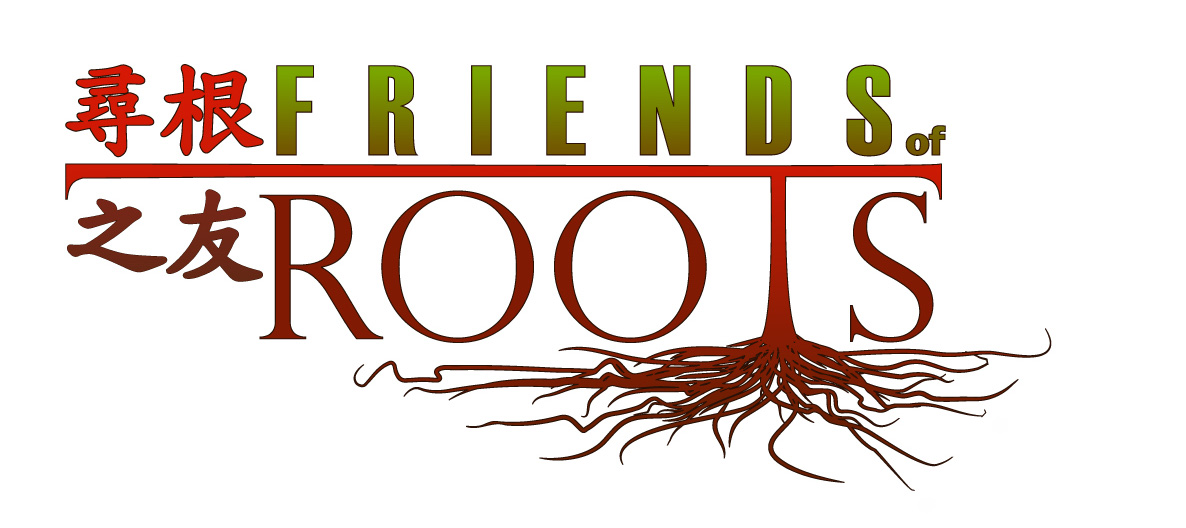
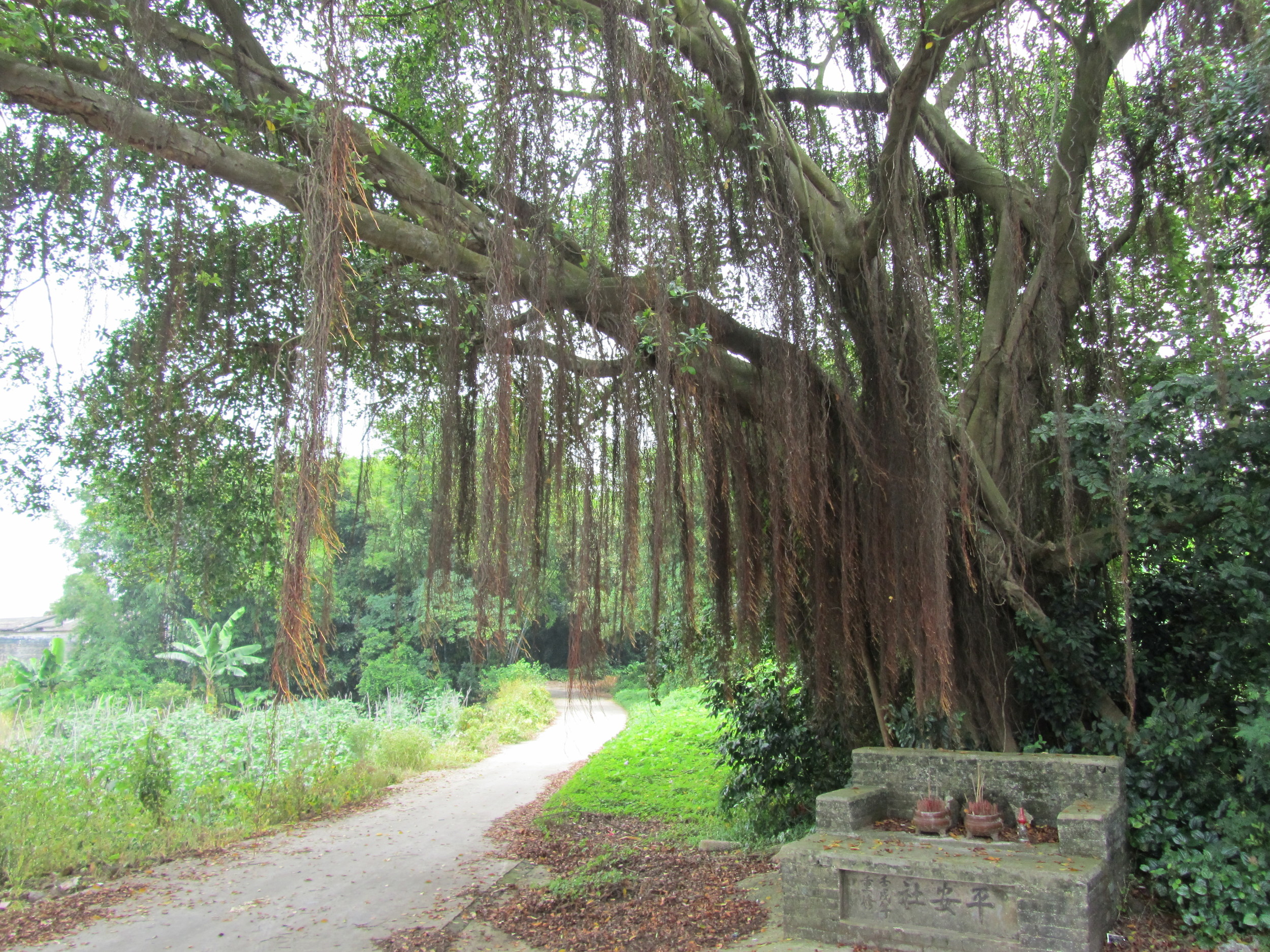

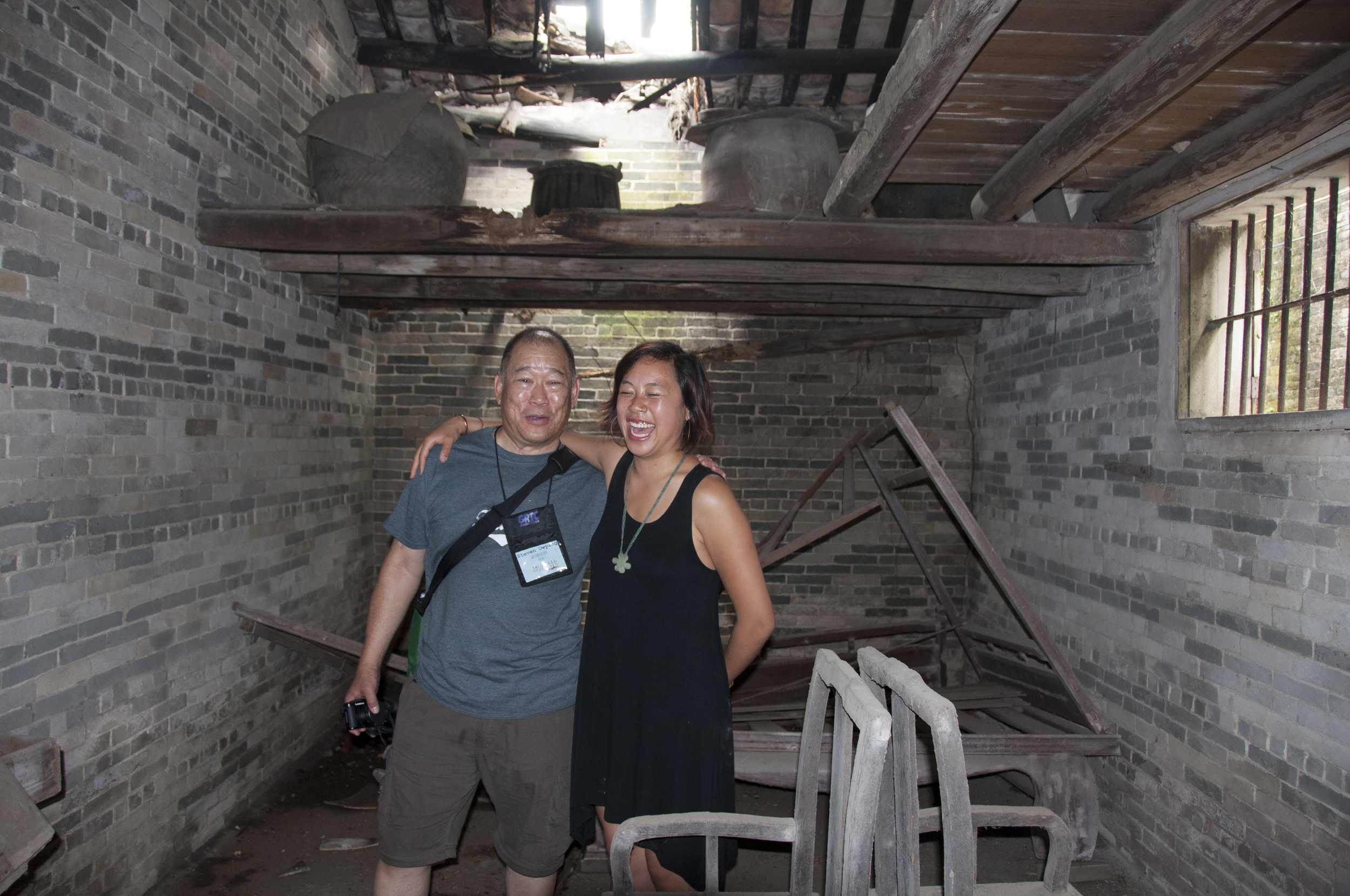
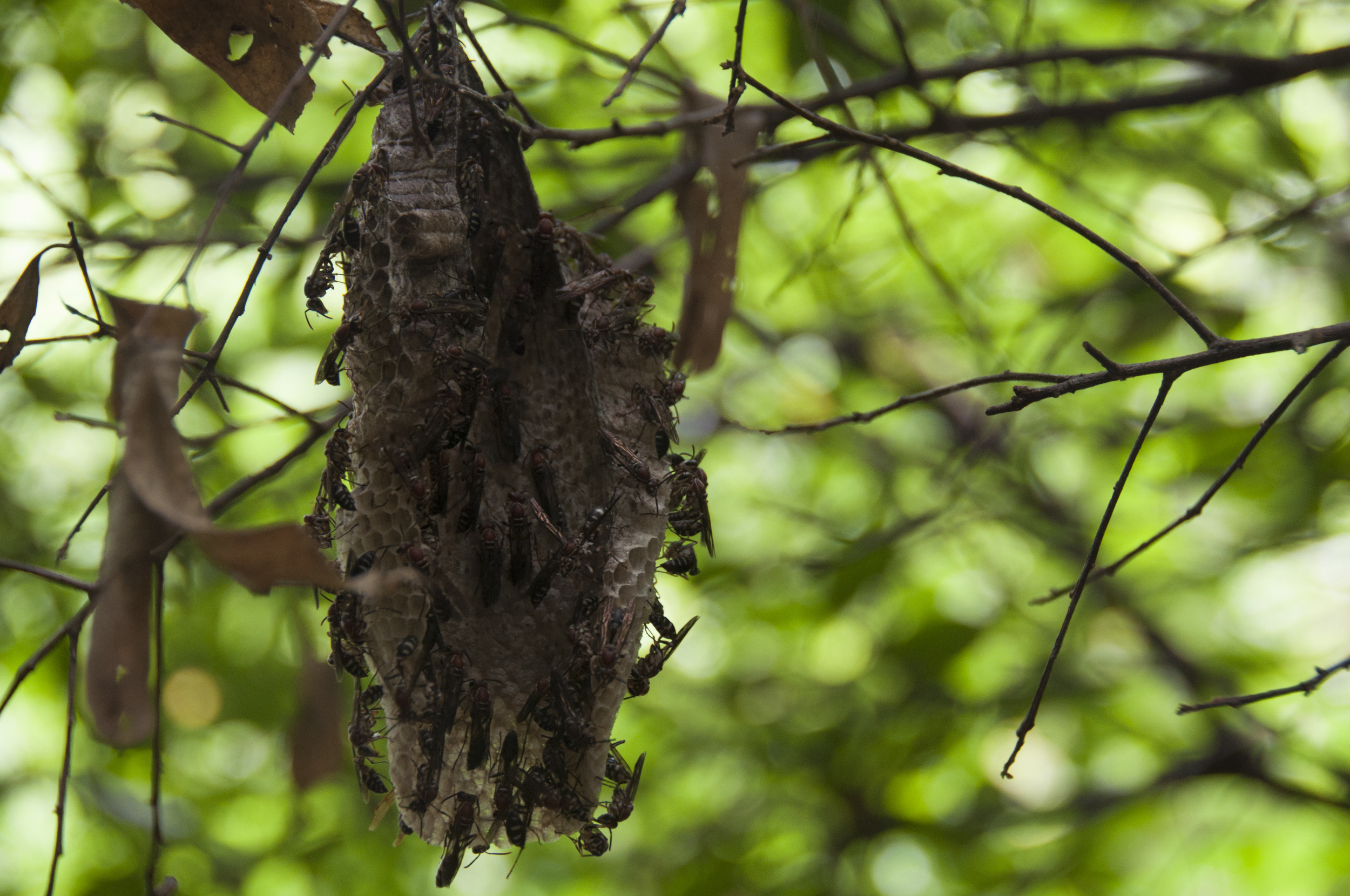
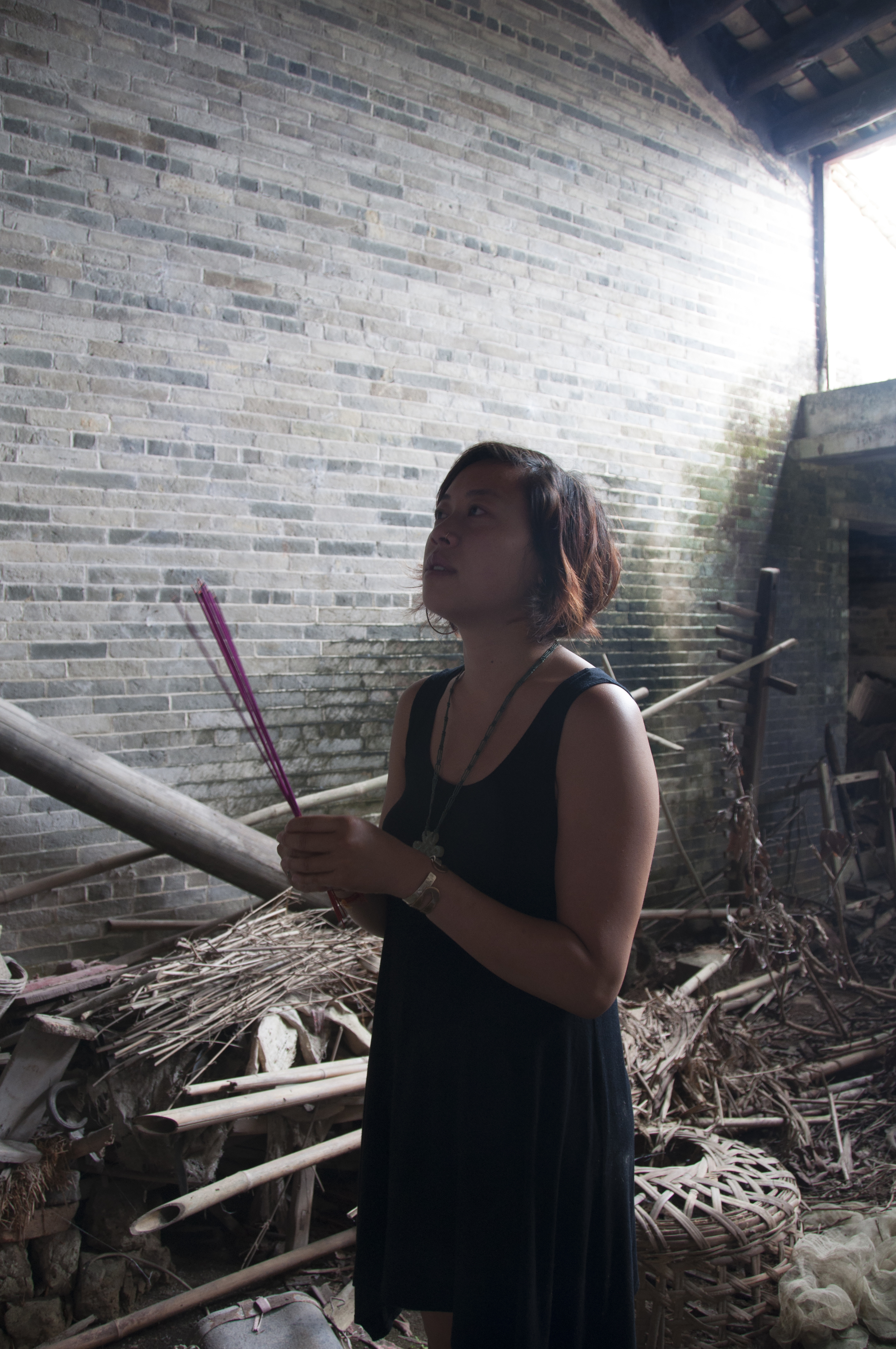
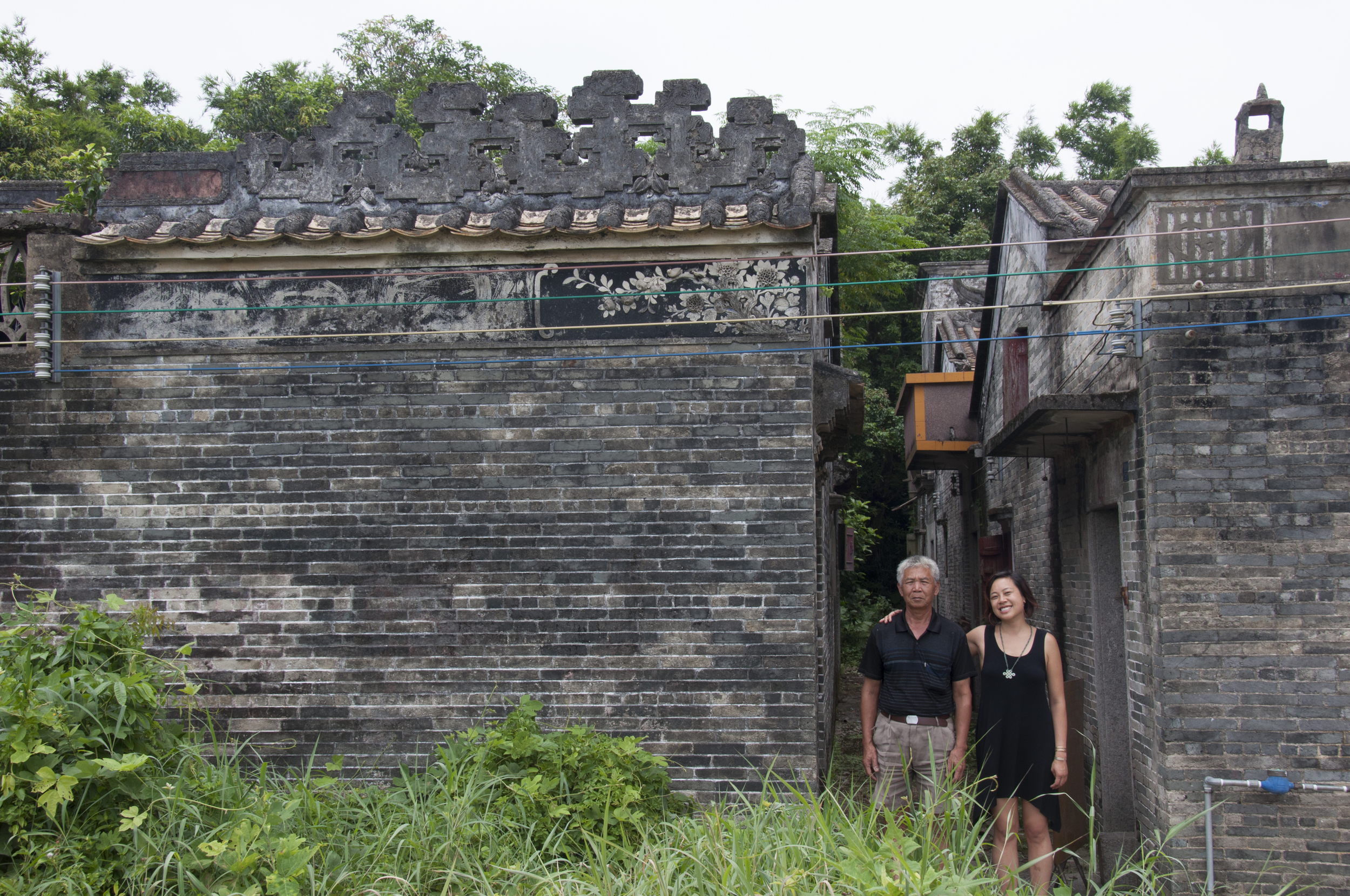
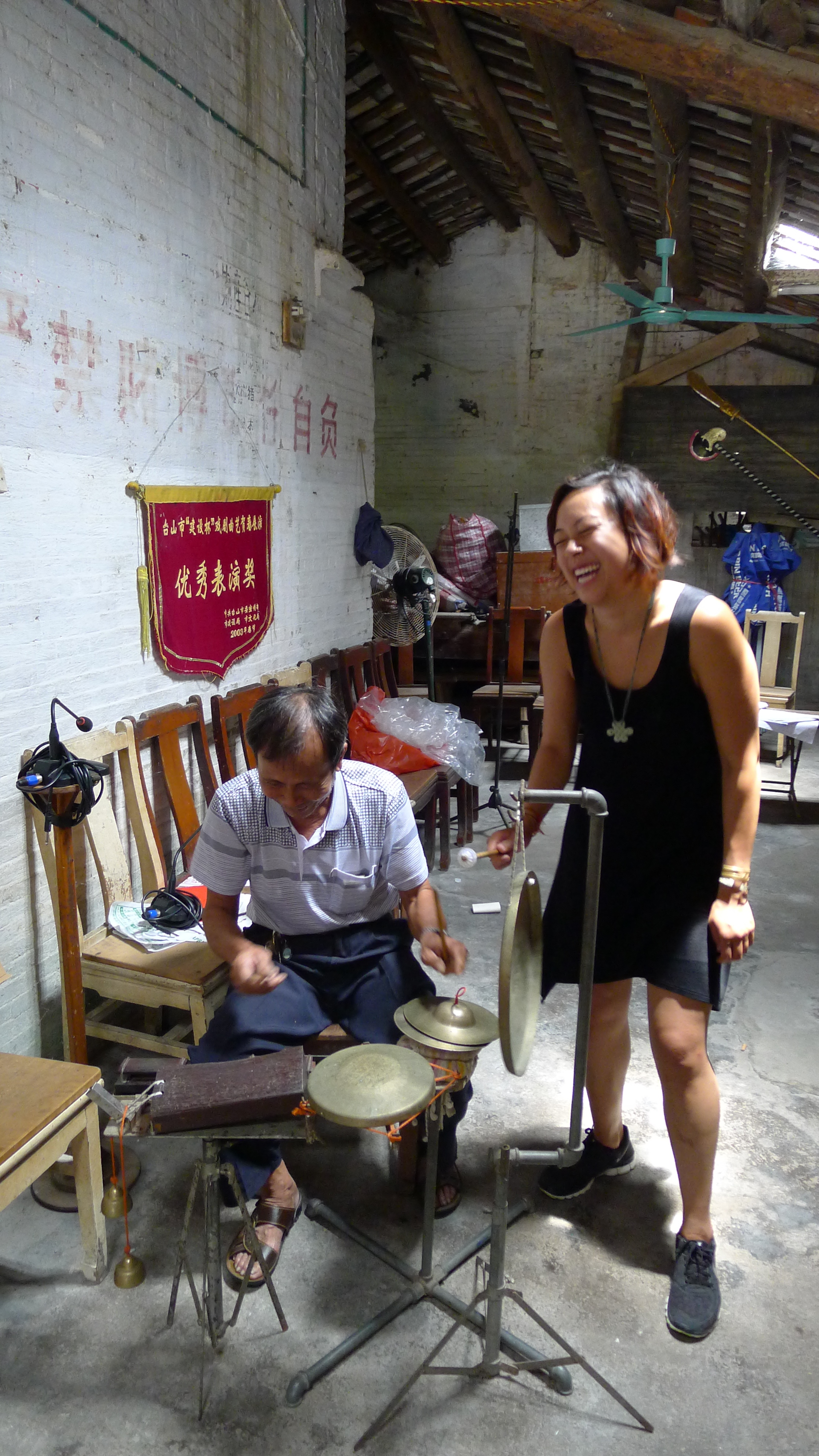
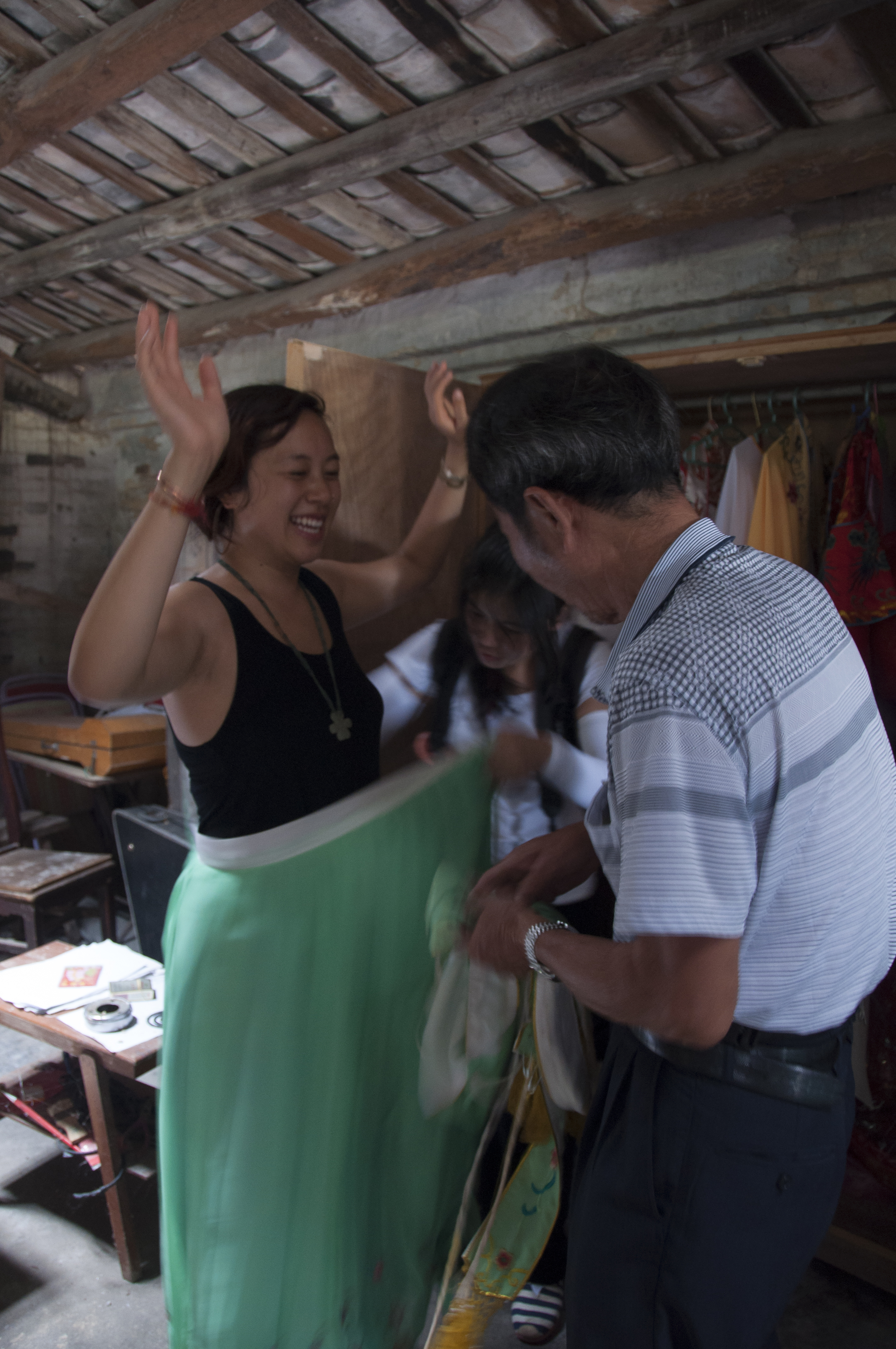
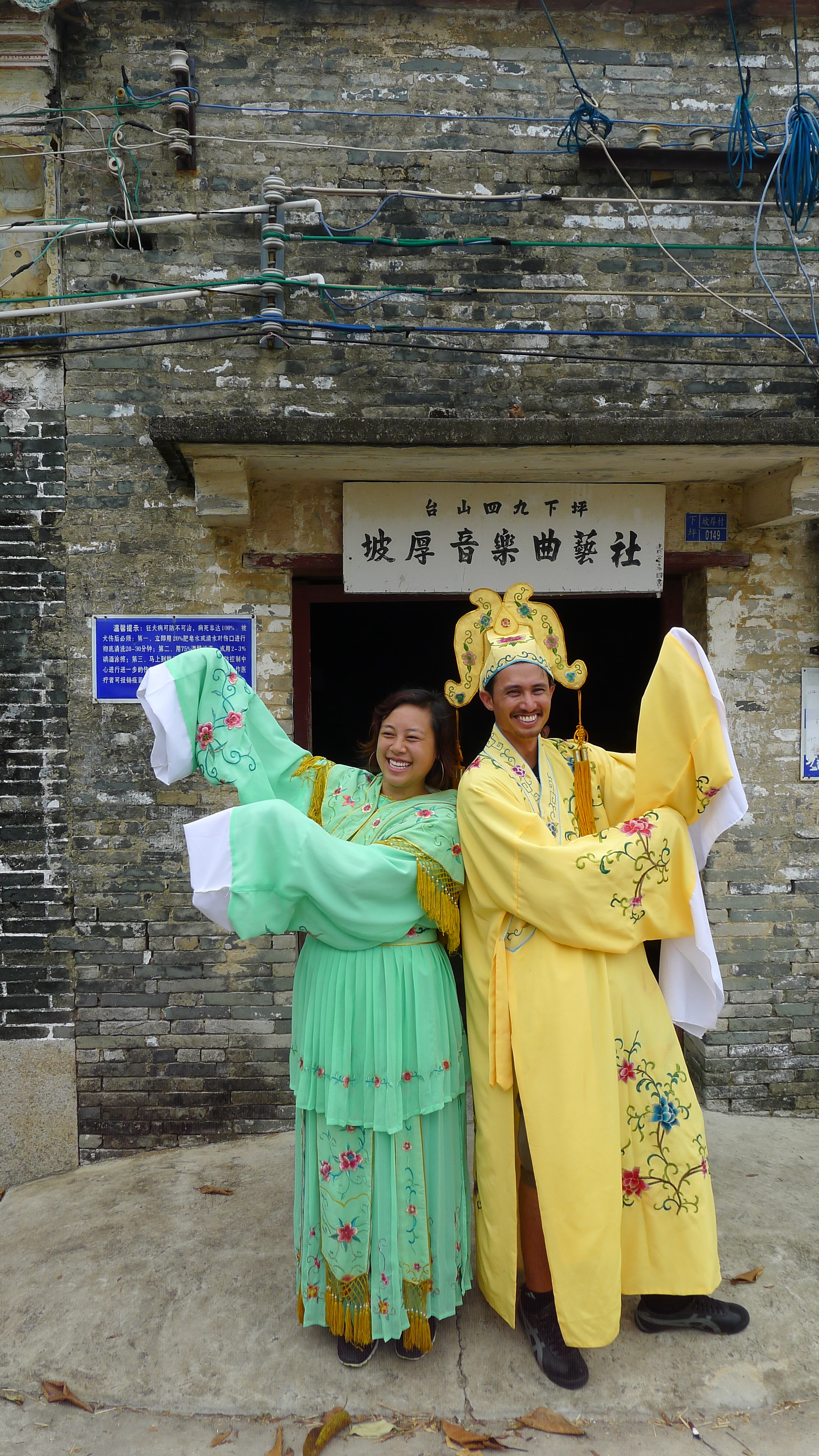
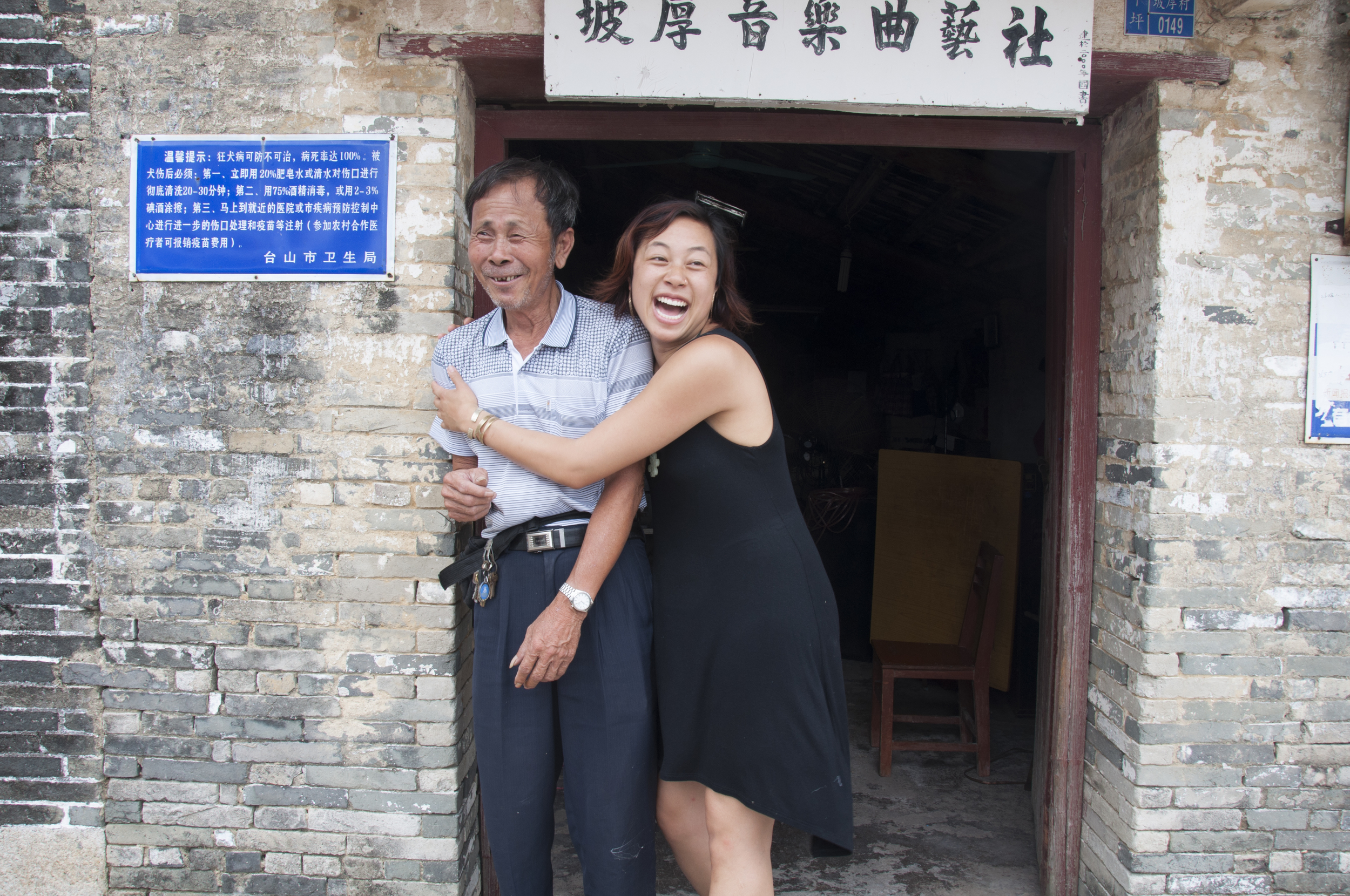
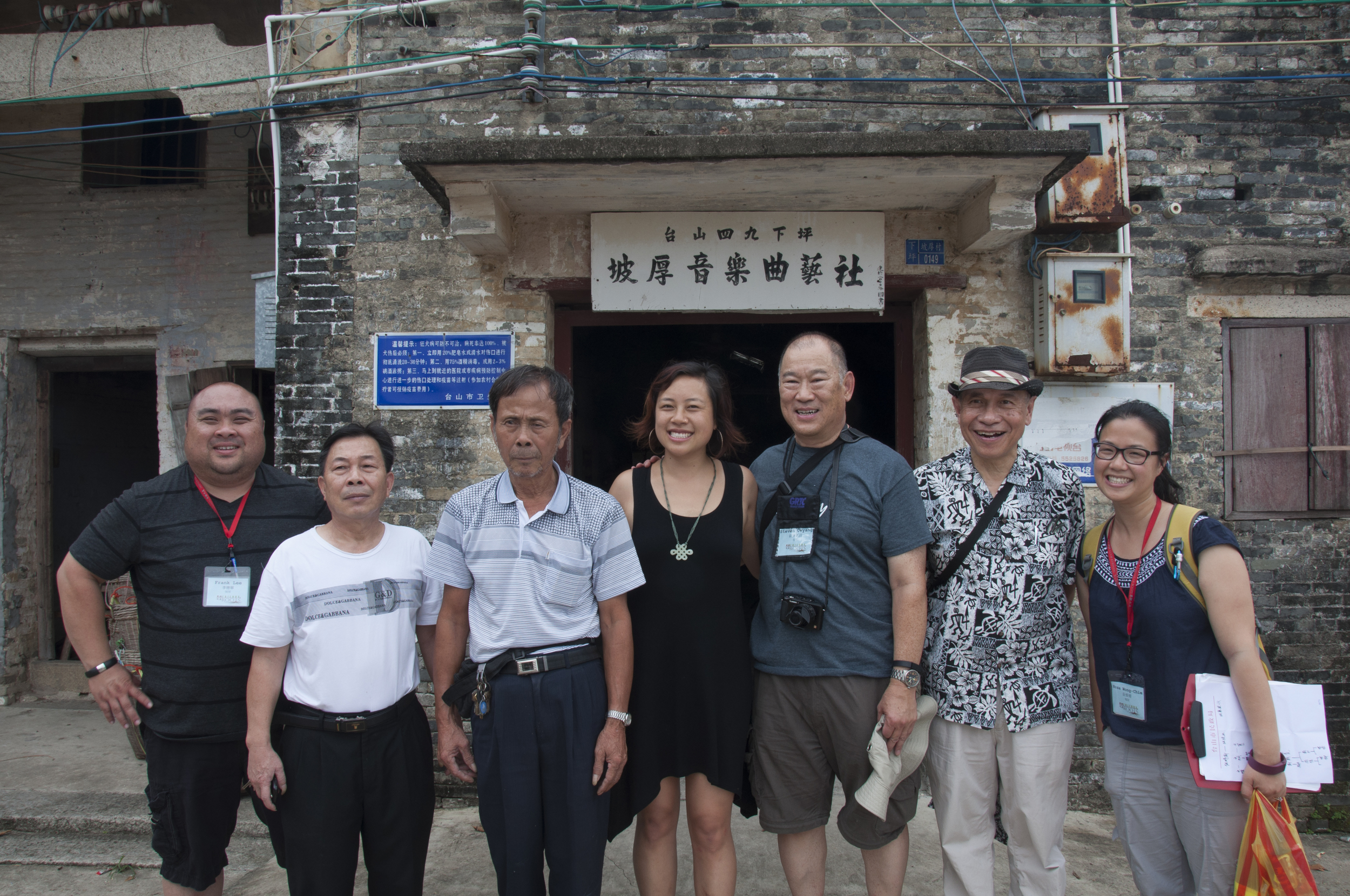
I was born and raised in San Francisco, CA. My mom’s grandparents came from Toishan, Guangdong, China, my dad’s parents came from Laoag, Illocos Norte, in the Philippines. My parents met through activist-organizing in San Francisco and that was the community I grew up in. Many of their friends were leaders in the movement for equal justice, particularly for Asian-Americans. Growing up in public schools, I was always surrounded by many other Chinese and Filipino kids. But from an early age, I noticed a cultural difference between myself and other Asian kids - the fact that I didn’t speak Cantonese or Illocano, the fact that I didn’t eat Chinese or Filipino food at home - meant something. In fact, I felt culturally more Japanese American because my elementary school had a Japanese bilingual program and I played basketball in a Japanese Buddhist Church in Japantown, for over a decade. I grew up with a sense of pride in being Asian, but never felt quite feeling Chinese or Filipino enough.
I decided to do Roots at a juncture in my life when I needed to reconcile several chronic health issues. Something told me that traveling to the land of my ancestors would connect me to a deeper part of myself. Roots was an opportunity for me to reconnect to the pieces of myself that are indisputable and absolute. I also wanted my work in social justice to be rooted in a stronger sense of my own identity and history. Going to China was my way of honoring my parents, my ancestors and as well as myself.
My roots journey was to my maternal great grandfather’s village. My Popo played a key role in my life and she only recently died in August 2014 at the age of 92. She cared for me when I was home sick and nurtured the garden where I played. Over my lifetime, I asked her many questions about her life, childhood, and beliefs. Attending college near Seattle allowed me to better understand what shaped her. She was a community woman who prioritized her deep relationships with friends and family from coast to coast and was constantly contemplating the horizon between the rational and spiritual world. Through her and my mother I have learned how to be a brilliant host of parties and how to solve anything.
My great grandfather, her father, was born in the village of SeiGau, and first moved to Seattle on his own in the late 1890’s. He promptly became a houseboy in Port Angeles, WA, and later returned to China to bring his wife, son, and third daughter to the U.S., leaving his two eldest daughters in China.
My Popo was the youngest of six children. She shared stories of being picked up by her father from Bailey Gatzert Elementary School and walking back to Chinatown where they lived. They would grab a snack at the coffee shop where my great grandfather would eat a slice of apple pie and a cream puff everyday. Although he ran a restaurant and a grocery store, he paid a lot of attention to her; I’ve always imagined her being his favorite. When she was 11, she accompanied her mother and father to seek an Eastern remedy for her father’s cancer. When he died in China my Popo was the only one in the room.
As a 4th generation non-Chinese speaking Chinese-American, I had anxieties point towards a feeling that I might not find anything in my search. The experience of finding my ancestral village, was much like solving a puzzle with highly skilled detective help. I would not have been able to find my village without the leaders of Roots whose mixture of organizational skills, mandarin, cantonese, seiyup, and understanding of genealogy made this such a complete project. And my fellow interns each supported the unpredictable emotional work that had to take place for each of us to make this journey meaningful.
I was also grateful to be on this trip with Steve, one of my dad’s oldest friends. He was always present at parties in our home, talking about food, cracking corny jokes, and playing music. Steve was able to locate my village through several blind calls to one of my aunts in NYC who directed him to her “Kau Fu” in NYC, who described the village being over a bridge from Sei Gau and beyond a school. All of these turned out to be accurate and assuring landmarks upon our entrance, corroborated by the words on my Great Grandmother’s tombstone in Seattle.
I had hopes of finding the two gravestones of my great grandfather and my great great grandfather. My mom and my Auntie Susu remember being led to the ancestral home by my Popo’s eldest sister and her children. They were taken to the gravestones buried in the rice fields by the side of the house. This was the most specific information and connection I had to the village.
The night before my “rooting”, I delivered clear instructions to my fellow “rooters”, to go out into the rice fields and search for these important relics. I remember Al saying “we’ve never done this before”, speaking about a search process not actually focused on finding an actual home or relative. The night before I was filled with anxiety: “What will happen if I don’t find these gravestones? Will I leave feeling complete? Will I find anything meaningful at the village? ”.
The drive to my village was very low-key and similar to the villages I had seen the past few days: rice fields, green hills, scattered villages branching off major roads. When we arrived through the modest gate of my village, the watch tower rose prominently on the left. To the right, eggplant grew in neat rows coiled around supporting stalks. Flat piles of peanuts lay drying on the concrete.
As I stepped off the bus, a thin older man with beetle nut-stained bottom teeth, thick glasses and a big smile greeted us. He immediately told us he knew exactly where my ancestral home was! I was surprised and eased. We walked down a path greeted by a single water buffalo. We were shown through the front door opening along a short alley way. Everything was happening so quickly. Suddenly I was in a room where sunlight shined through a hole in the roof feeding weeds shooting up from ground. Little stood in the room but two sturdy wooden chairs, elevated, crossing catwalks storing cracked pots and a wooden canopy bed frame lay broken on the floor in the corner. Through the cobwebs and dust, I tried to imagine the playing, sleeping, laughing, arguing, love-making - that happened in that room. It’s likely my great grandfather died in this room.
I lit incense for my family and my ancestors in the main center room. I thought about the sacrifices and risks they took, the life and relationships they gave up in order to find a new life and more prosperous means - all of which have shaped my resilience. Life goes on, life is full of challenges and triumphs I too will live through the moments that I think are unbearable, unforgiving or unresolved.
Thinking of my ancestors in this way challenged me to ask what “What will matter to me at the end of my life? What sacrifices can I make? How often can I make them?”. I began to play with this idea of “micro-sacrifices,” daily risks, such as sacrificing a bit of my ego to do the right thing, to speak up on behalf of others, to speak up on behalf of myself. I thanked my ancestors for these thoughts and cried them into liquid form.
I still hoped to find my great grandfather and great great grandfather’s gravestones. Steve and Rosa shared with the village chief the story of my mom’s visit to the grave stones of our ancestors. An older man who knew exactly what we were talking about but he reported their graves had been moved from the rice fields, near the side of the house, to a site a quarter mile away during a governmental land repurposing process in the late 90’s. They explained that it would be too difficult to visit today but if I should let them know in advance, they could cut away the tall grass and create a walking path to visit the graves in the future.
The older man agreed to show me the site where they once lay and so I followed him out of the house. We walked through brush and bright green stalk, meandering through a small bamboo forest, passing through a hornet’s nest the size of my two fists combined. As we came into a small meadow protected by taller trees and bamboo, the older man confirmed that the area was rice patties twenty years ago, before the land-use redesign, where my great great grandfather and his son laid.
The leaders and Rooters then gave me some space to be by myself. I could hear the wind blowing, birds singing, cicadas ringing. I watched a dozen black butterflies wisp in and out of the sanctuary and blue beetles crawled on mint-colored leaves at my feet. I felt safe, protected, and connected. I thanked my ancestors once again and whispered gratitude. Our bodies have gone back into the earth since the beginning of human life and thus the grass and the trees that stood around me were direct remnants of their bodies. The insects and birds around me were descendants of their ancestors who likely lived when mine did. I felt nourished by my ancestors whom over hundreds and hundreds of years are responsible for my existence.
Back at the village courtyard and recreation area, my cohort had gathered in a room stacked with musical instruments, sheet music and photos of past performances. My village chief led a band that performed Chinese opera nightly in the village square. He motioned me over to join him on a basic percussion sequence. We played together: “Bam, buh bam, buh bam bam bam cling cling buh bam cling bam bam!”. At the end he stood up and opened a wardrobe to show us costumes worn during performances. Before I knew it, Yani was dressing me in bright teal robes and floral belts. The village chief presented a matching yellow robe and headpiece and the group nominated Gino to put it on. I was all smiles. We took embarrassing photos outside while trying to imitate the traditional arm movements. Everyone, including the village officials, was laughing both at us and with us.
There were many language barriers for me throughout my time in China, but for a moment in my village, I was able to communicate through the language of music and play. That meant everything to me. I was amazed that the chief and his kin performed every - single - day. I invited myself to think of creative practices I could commit to everyday.
This trip strengthened my trust in my ancestors and the power they have stored in the lesson waiting to unfold before me. I believe that the more I honor and respect myself, the more I honor and respect my ancestors. The time spent in Toishan revealed vivid connections between the two climates I come from ( in the Southern China and the Philippines): hot and humid weather, gray skies, heavy rains, rice fields, lush hills, mysterious fog, vibrant biodiversity. The stickiness and sweatiness of the air encourage healthy skin, consumption of salty foods, and sipping of many fluids. The warmer climate means a more patient approach to life. I will use the protection I felt in the meadow where my ancestors were once buried to bring me back in moments of doubt. I am grateful for the Roots program’s facilitation of deep emotional processing and sharing of histories and inside jokes. The village our cohort created over our two-week trip built an invaluable vessel for me to grow and I know we wish each other only further growth while carrying on our family’s legacies.
